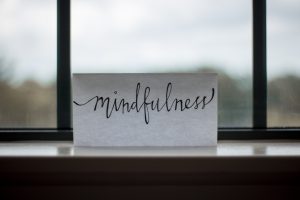How Can We Relieve Chronic Pain?

Chronic pain is not а disease in and of itself, however, it is a crippling condition that goes along with a number of different ailments or injuries. Having to plan your weeks always keeping in mind that though everything seems okay now, your plans might have to change at the last minute.
Our search engine comes up with 555 clinical trials around the world for chronic pain, but you can enter your specific condition and find a clinical trial for it. As always, there are some interesting trials– even ones studying the mind-body connection when it comes to pain and whether mindfulness can have a positive impact. And if you’ve tried every painkiller there is and nothing works for you, or you simply don’t want to always manage your pain with pills, you can give mindfulness a try. You can also keep reading, as we’re about to give you some other options to consider, apart from the drugs your doctor has probably already prescribed
 Lеarn to manage your emotions the right way. Did it sound kinda off to you that there are studies about the link between mindfulness and pain relief? Did it even make you angry – those “scientists” who think you can make the pain go away just by shifting your focus, instead of developing actual medicine… Well, that’s understandable. But there actually is a link between your emotions and your pain, specifically – between depression and pain, which is why in some cases doctors prescribe antidepressants to manage the pain. The antidepressants can kill two birds with one stone – they help both with the pain and with the emotional distress of living with it.
Lеarn to manage your emotions the right way. Did it sound kinda off to you that there are studies about the link between mindfulness and pain relief? Did it even make you angry – those “scientists” who think you can make the pain go away just by shifting your focus, instead of developing actual medicine… Well, that’s understandable. But there actually is a link between your emotions and your pain, specifically – between depression and pain, which is why in some cases doctors prescribe antidepressants to manage the pain. The antidepressants can kill two birds with one stone – they help both with the pain and with the emotional distress of living with it.
However, don’t take this to mean you have to try and be happy all of the time as to not worsen your pain. Aiming for an impossible standard of happiness can actually have the opposite effect – put more pressure on you and make your life even more stressful. Instead, learn to lovingly accept your emotions and allow yourself to feel everything you feel at all times. Remember: it’s okay to not be okay.
 Additionally, you can learn to meditate. This will not only help you become more in tune with your emotional states and more aware of your thoughts, but it will also physically relax your body and in turn – soothe the pain. Tension, stress, and anxiety all intensify the pain by increasing the body’s sensitivity, so living with chronic pain can turn out to be a journey toward a more peaceful, calm and fulfilling life in general.
Additionally, you can learn to meditate. This will not only help you become more in tune with your emotional states and more aware of your thoughts, but it will also physically relax your body and in turn – soothe the pain. Tension, stress, and anxiety all intensify the pain by increasing the body’s sensitivity, so living with chronic pain can turn out to be a journey toward a more peaceful, calm and fulfilling life in general.
Physical activity, if possible for you, can be a powerful weapon in the fight against chronic pain. Since exercise releases endorphins – hormones that improve your mood and block pain signals – it’s often recommended both in the fight against mood disorders and in the one against pain. Your doctor should be able to give you some tips what kinds of movements to avoid, but if you want to take it one step further, you can contact a specialist and even introduce them to your primary physician so they can work together for even better results.
 Think about joining a support group. It’s one thing to have the unconditional presence of your friends and family and it’s a whole other thing to talk to people who go through a very similar experience. As much as your loved ones care about you, you will be able to relate more to people living with chronic pain and the level of empathy such interactions offers remains unmatched. So, consider joining a support group – you might find close friends there, learn more about your condition and even exchange valuable tips on coping with your pain from someone on the same journey as you.
Think about joining a support group. It’s one thing to have the unconditional presence of your friends and family and it’s a whole other thing to talk to people who go through a very similar experience. As much as your loved ones care about you, you will be able to relate more to people living with chronic pain and the level of empathy such interactions offers remains unmatched. So, consider joining a support group – you might find close friends there, learn more about your condition and even exchange valuable tips on coping with your pain from someone on the same journey as you.
Don’t turn to vices. Both alcohol and cigarettes can actually worsen chronic pain instead of providing a distraction from it. If you find yourself overwhelmed by negative thoughts and feelings, turn to a mental health professional. There is no shame in asking for help and someone working with people like you can point you to a few healthier coping mechanisms.
 Keep a journal. It’s not only an outlet to express yourself uncensored, but also a great way to track your day-to-day activities and pain level – you just might find a correlation. Your doctor will also want to know how you’ve been doing since your last visit. And – it’s a nice hobby anybody can take up, even if living with a significant number of health-related restrictions.
Keep a journal. It’s not only an outlet to express yourself uncensored, but also a great way to track your day-to-day activities and pain level – you just might find a correlation. Your doctor will also want to know how you’ve been doing since your last visit. And – it’s a nice hobby anybody can take up, even if living with a significant number of health-related restrictions.
 Find a way to enjoy life. Psychologist and World War II survivor Victor Frankel says that it’s not our suffering that brings us down – it’s letting ourselves believe that there is no point to it. So, go find the meaning of your life… or create it, if that’s what you believe in. Our lives don’t have to be a string of happy moments for us to feel content, they just have to mean something.
Find a way to enjoy life. Psychologist and World War II survivor Victor Frankel says that it’s not our suffering that brings us down – it’s letting ourselves believe that there is no point to it. So, go find the meaning of your life… or create it, if that’s what you believe in. Our lives don’t have to be a string of happy moments for us to feel content, they just have to mean something.
If you consider joining a clinical trial for your condition, remember that it’s not just about your individual life here and now – you’re also helping medical professionals gain a better understanding of the disease itself and how best to treat it. So, by participating in a clinical trial you’re not only taking care of your own health, you’re becoming part of the solution.
Article by Nelly Katsarova

